Global Issues
International Relations
There are some issues in today's globalized international scene that are not region-specific and that have world-scale implications.
Globalization itself is a powerful force that makes states and regions more and more interdependent via trade, markets, communications and institutions.
Climate change is transforming practically all of Earth's ecosystems, with sensible consequences for human life. This impacts the economy, affects health, causes migration flows, and creates new security challenges in many areas.
Financial and commodity markets are globalized; meaning that events happening in any region can affect them and at the same time that an economic crisis initially limited to a single area can quickly spread to the rest of the world (as it was the case of the US financial crash in 2008).
Multinational corporations operate on a global scale, and have accumulated such wealth that their power is no longer limited to markets but also reaches the political sphere; to the point that nowadays they are major international actors sometimes serving and sometimes rivalling states.
Global institutions like the United Nations, the International Monetary Fund, the World Bank or the World Trade Organization, can take decisions with world-spanning effects.
The internet is connecting the globe, allowing instant communications and making huge amounts of data available to everyone; but it also raises the challenges of disinformation and cyberwarfare, which can have deep political, economic and even material consequences.
New technologies soon become available all over the world. Advances in domains like AI, robotics, nanotechnology, genetics and others can have a deep impact. This may potentially lead to the 'Singularity' (in simplified terms, human-machine fusion), which would radically transform human nature to the point of questioning how "human" it would be at that point and altering the foundations of our civilization.
My analyses on such kind of global issues will be posted in this page.
Backgrounder: Treaty on the Prohibition of Nuclear Weapons (TPNW)
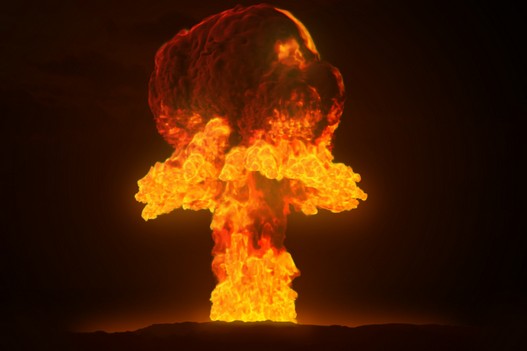 In another largely unnoticed development, the Treaty on the Prohibition of Nuclear Weapons (TPNW) is going to enter into force in January 2021.
In another largely unnoticed development, the Treaty on the Prohibition of Nuclear Weapons (TPNW) is going to enter into force in January 2021.The intended purpose of the TPNW is to completely eliminate all nuclear weapons in the world, and it has been celebrated by supporters as a great step toward total nuclear disarmament; to the point of declaring that “nuclear weapons are banned.”
But a closer look at the countries which have – and most importantly which have not – ratified the TPNW reveals that, for the time being, the Treaty’s real impact will be very limited, if not completely absent.
Photo credit: Atom Bomb Nuclear Explosion, Burnt Pineapple Production, published under public domain CC0 1.0 Universal (CC0 1.0)
The Resonance Chamber: The Mediatic Coverage of Terrorist Attacks
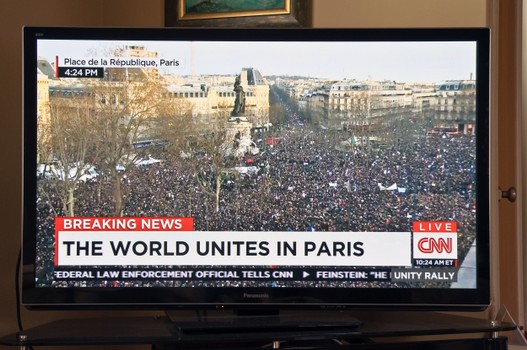 In my second contribution to Intelligence Fusion's blog, I examine the relation between terrorism and the media.
In my second contribution to Intelligence Fusion's blog, I examine the relation between terrorism and the media.Starting by dissecting the various levels at which terrorists operate, I focus on the operational/psychological dimension - creating fear among a target audience by perpetrating 'spectacular' attacks that attract the attention of mass media. The mediatic coverage of terrorist attacks - often consisting of emotionally-charged sensationalistic multimedia content - represents a powerful 'resonance chamber' which maximizes the psychological effect that terrorists seek.
Such mediatic reporting is inappropriate and even detrimental to counter-terrorism efforts, as it fosters resentment against people belonging to the same group as the terrorists (thus triggering a vicious cycle of mutual distrust) and allows terrorists to attain their goal of spreading fear.
Photo credit: Je Suis Charlie - America's CNN coverage of the gigantic Paris rally in support of Freedom of Speech and democracy, Caribb, published under Creative Commons Attribution-NonCommercial-NoDerivs 2.0 Generic (CC BY-NC-ND 2.0).
The Danger of Disinformation and the Rise of Ochlocracy
 In an age of mass and quasi-instantaneous communication, disinformation has become a major threat to the tenure of democratic societies.
In an age of mass and quasi-instantaneous communication, disinformation has become a major threat to the tenure of democratic societies.While the debate on the issue often focuses on state and non-state actors that use disinformation to pursue their goals, in my blog entry kindly hosted by Intelligence Fusion I argue that the real danger lies within: if disinformation is so dangerous today, it is because the fundamental constituent of a democratic society - the demos itself - does not possess the intellectual means to protect itself from manipulated information.
Therefore, I argue that critical thinking and education are crucial for democratic societies to become truly resilient against disinformation - as without them, democracy's very existence is at risk.
Photo credit: Graphic on Fake News by VOA, VOA News, published under public domain.
Great Powers in 2030
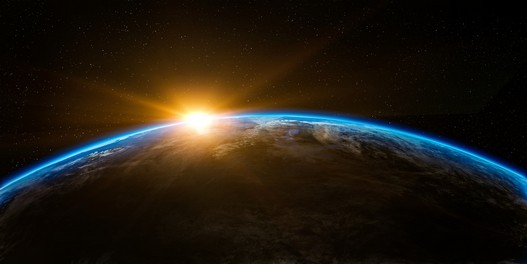 The international scene is continuously changing.
The international scene is continuously changing.Shifting economic weight, demographic trends, climate change, new technologies and other factors are redistributing the global balance of power.
So, which powers are set to lose and gain by 2030?
Geopolitics of the Indian Ocean
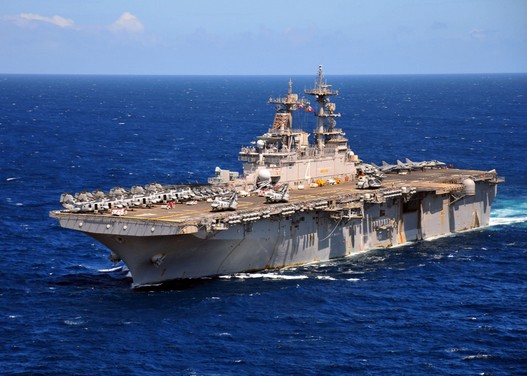 The Indian Ocean is an immense maritime space of great geopolitical and geo-economic importance.
The Indian Ocean is an immense maritime space of great geopolitical and geo-economic importance.It is a crossroad for international trade that connects the advanced economies of the East and the West.
At the same time, there are also many factors that threaten its stability. These are often closely related with the international dynamics of the Asia-Pacific, to the point that the two areas can be considered as single reality: the Indo-Pacific.
Learn more about the importance of the Indian Ocean in this video by KJ Reports based upon my analysis.
The Global Race for AI Superiority
 Artificial Intelligence, often called simply AI, is one of today’s most important technological trends.
Artificial Intelligence, often called simply AI, is one of today’s most important technological trends.It is a rapidly-evolving domain with the potential to disrupt virtually all economic sectors.
But while the attention is usually focused on its impact on business, AI can also have a major impact on society and politics, both at the domestic and at the international level.
This video by KJ Reports (exceptionally hosted on another YouTube channel, CaspianReport) to which I had the pleasure to contribute explores this important topic.
Geopolitics of Climate Change
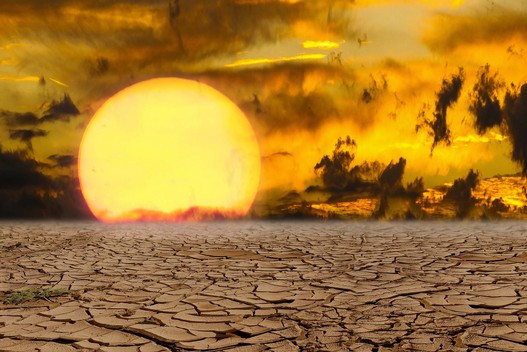 Climate change is set to profoundly alter the world in the decades to come.
Climate change is set to profoundly alter the world in the decades to come. It will deeply affect the entire Planet’s ecosystems, as well as the global economy and the lives of hundreds of millions of people.
But it will also have, and in practice already has, a notable geopolitical impact; with the potential of radically modifying the existing international order.
